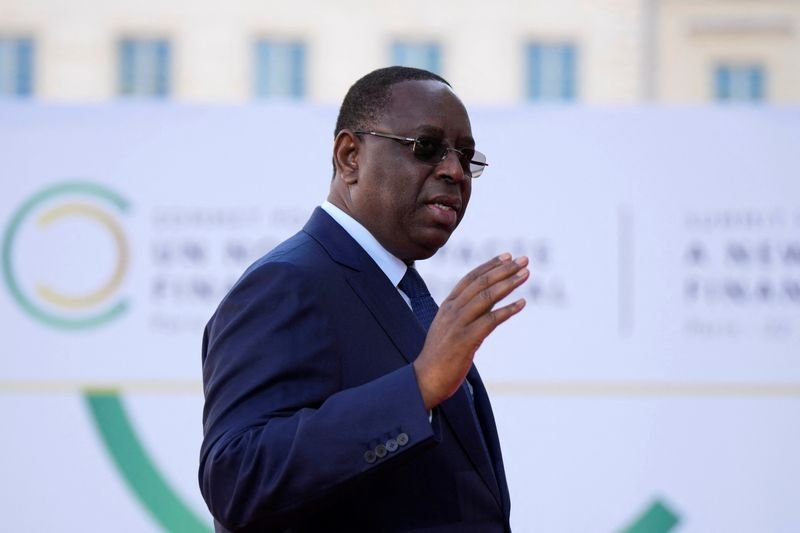Senegalese President Sall’s Opponents Decline Offer for Talks
DAKAR, February 23 – Senegalese opposition presidential candidates have rebuffed an invitation to participate in talks proposed by President Macky Sall, who insists that these discussions are a prerequisite before rescheduling a postponed presidential election. Despite committing to step down when his current mandate concludes on April 2, Sall faces challenges in determining a new election date amid mounting pressure to resolve a three-week electoral crisis that has sparked unrest and concerns about democratic erosion.
President Sall, in his address on Thursday, outlined the necessity for political parties and civil society to engage in talks scheduled for Monday, a day after the initially planned presidential vote. However, sixteen of the nineteen presidential candidates rejected this proposition during a joint press conference in Dakar.
Accusing Sall of undermining the constitution for personal gain, a spokesperson for opposition candidate Khalifa Sall called for an immediate announcement of the election date. Another contender, Anta Babacar, categorically rejected what she called a “sham of a dialogue,” emphasizing that the nation’s future should not be held hostage.
The opposition’s refusal to participate intensifies the political crisis that has gripped Senegal since early February when the parliament approved a 10-month delay for the presidential election, a decision later deemed unconstitutional by the top court.
Adding to the complexity, civil society groups declined involvement in the proposed talks. The Aar Sunu Election group asserted that President Sall was not adhering to his commitment to comply with the court’s ruling and urged the election to occur before April 2. Originally citing disputes that could compromise the poll’s credibility, Sall’s decision to postpone triggered widespread domestic and international criticism, with some labeling it as an attempted “institutional coup.”


















